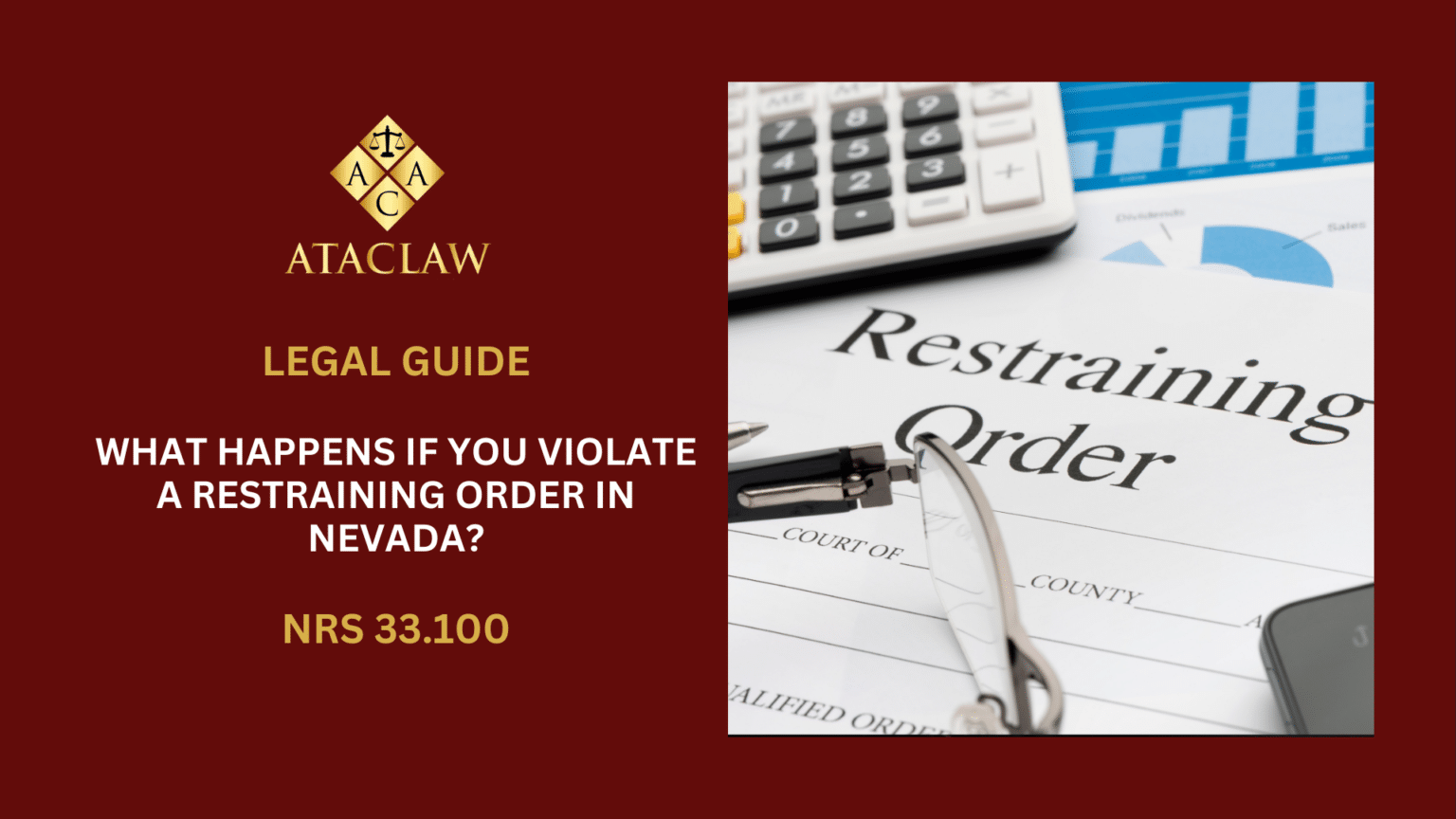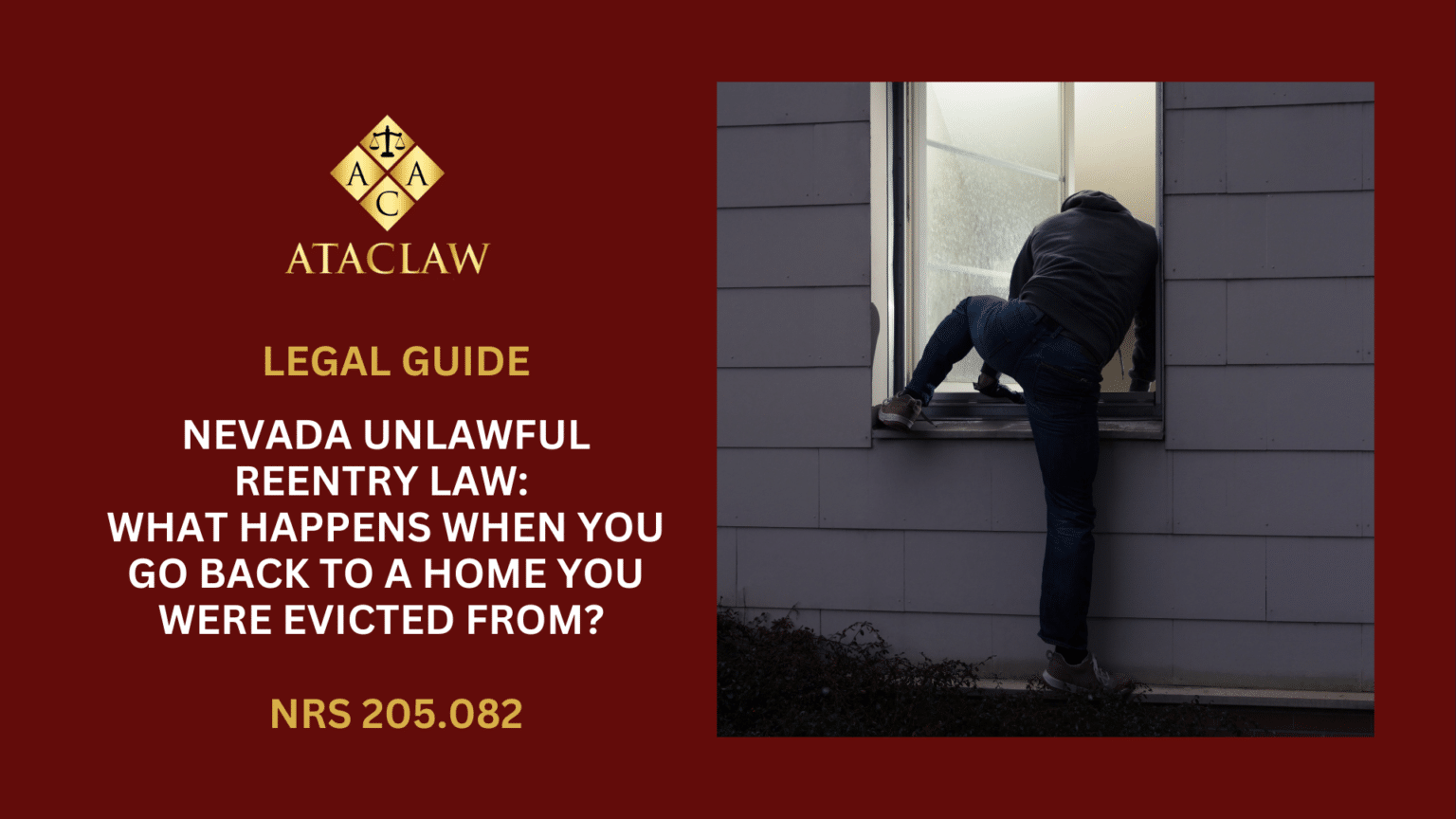What Constitutes a Restraining Order Violation in Nevada?
A restraining order violation occurs when the adverse party, the person the restraining order is taken out against, defies the rules specified in the order. For example, if an ex-boyfriend who has been issued a restraining order goes to his ex-girlfriend’s house despite the court order requiring him to avoid contact, he would be violating the restraining order.
In Nevada, courts grant temporary or extended orders of protection to individuals who are alleged to be at risk of various forms of harm, including domestic violence, harassment, stalking, workplace harassment, sexual assault, or child abuse. Each protection order is unique to the specific case and may include provisions such as child visitation and custody rules, continuation of rent or mortgage payments, surrendering of firearms, specified locations or individuals to avoid, and a prohibition on any form of contact with the accuser.
It is crucial to note that violating any provision within a restraining order is considered illegal in Nevada. Each instance of a violation is treated as a separate charge. It is important to be aware that when someone initially applies for a temporary protective order (TPO), the judge may grant it without allowing the adverse party to defend themselves. TPOs typically last for 45 days, except in cases of workplace harassment where they last for 15 days.
If the alleged victim wishes to extend the protective order, they must apply for an extended protective order (EPO). In the case of an EPO, the adverse party is allowed to defend themselves in court before the judge can issue the order, which typically lasts for one year. However, even if an EPO is issued, the adverse party can appeal the judge’s decision to a higher court or bring a motion asking the judge to dissolve the EPO.
What Penalties Are Imposed for Violating a Restraining Order?
What are the Consequences of Violating a Restraining Order?
The penalties for violating a restraining order in Nevada vary based on the type of order and any prior violations. Here are the consequences for intentional violations:
Protection against domestic violence:
- Temporary Protection Order (TPO):
- First offense: Misdemeanor with up to 6 months in jail and/or $1,000 in fines.
- Extended Protection Order (EPO):
- First offense: Misdemeanor with up to 6 months in jail and/or $1,000 in fines.
- Second offense: Gross misdemeanor with up to 364 days in jail and/or $2,000 in fines.
- Subsequent offense: Category D felony with 1-4 years in Nevada State Prison and up to $5,000 in fines.
Protection against workplace harassment:
- Misdemeanor with up to 6 months in jail and/or $1,000 in fines.
Protection against harassment, stalking, sexual assault, or child protection:
- Temporary Protection Order (TPO): Gross misdemeanor with up to 364 days in jail and/or $2,000 in fines.
- Extended Protection Order (EPO): Category C felony with 1-5 years in prison and up to $10,000 in fines.
Possessing a firearm in violation of an EPO is a category B felony, regardless of whether it was concealed or not. The penalties include one-to-six years in prison and up to $5,000 in fines.
What Is the Optimal Approach to Defend Against NRS 33.100 Charges?
To effectively defend against allegations of violating a restraining order under NRS 33.100, it is crucial to consider the specific circumstances of the case. Here are three common defense strategies to consider:
Challenge the Service of the Restraining Order: Under Nevada law, strict rules govern the proper service of a restraining order on the adverse party. The order must be served in person by authorized personnel, such as local law enforcement, with the correct documentation to ensure you are adequately notified. If your defense attorney can demonstrate that the order was not properly served or if the paperwork was lost in the mail, you may not be criminally liable.
Establish Lack of Intent to Violate the Order: Violating a protection order is not illegal if you do not have the intent to break the rules. If you unintentionally come into contact with the protected individual, as long as you promptly leave the situation, no violation has occurred. Accidental actions, such as “pocket-dialing,” are also not considered violations. If your defense counsel can prove that your actions were accidental, based on a misunderstanding or mental incapacity, the case may be dismissed.
Dispute False Accusations: In some cases, the individual protected by the restraining order may falsely accuse you of violating it. Law enforcement may arrest you based solely on this accusation without any other substantial evidence. These situations often lead to a scenario where it is one person’s word against another (“he said/she said”). If the prosecution cannot prove beyond a reasonable doubt that you breached the order and the accusation is found to be false, the criminal charges may not hold.
Can the Record of a Restraining Order Violation Be Sealed?
Yes, the record of a restraining order violation in Nevada can be sealed under specific circumstances. The waiting periods for sealing the record vary depending on the type of conviction or dismissal. Here is the information in a tabular format:
| Conviction or Dismissal | Waiting Period to Seal the Record in Nevada |
|---|---|
| Misdemeanors or Gross misdemeanors | 2 years after the case ends |
| Category D felonies | 5 years after the case ends |
| Category C felonies or Category B felonies | 5 years after the case ends |
| Dismissals (no conviction) | Right away |
After the waiting period has passed, individuals can petition the court to have their records sealed.
It’s important to consult with a criminal defense attorney to understand the specific requirements and processes involved in sealing a restraining order violation record in Nevada.
Violating a restraining order in Nevada can have serious legal ramifications, including fines, probation, and potential incarceration.
By understanding the definition of a restraining order violation, the associated penalties, defense strategies, and options for record sealing, individuals can make informed decisions when addressing these legal issues. At ATAC LAW, our dedicated legal team is committed to providing effective representation.




